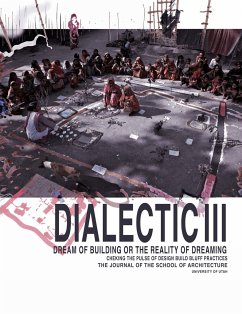The third issue of Dialectic focuses on the history, theory, and practice of design-build studio and non-profit design industry. Surely, these studios work on the margins. They are realized in geographies and neighborhoods off the cultural grid. They take students away from the grounding certainties of home and school. They transport participants to a world incompatible with the accepted norms of their educational institutions. They confront them with the limitations of high-tech spectacles born of tourist economy for the vast majority of the world that lie at the heart of disciplinary imagination. They force participants to investigate the ordinary, the understated, and the invisible, born of necessity. Most of these programs invent projects paid for with soft funds and produce clients. They do so in communities too poor to be of interest to the real estate industry and too voiceless to be heard by their councilors. They teach design's reliance on skilled labor. Contributing essays consider if this marginal practice has the strength to hold up a mirror to the center. They evaluate both its powerful and toothless practices, and reflect on the value of this enterprise. Photo essays provide timelines and approaches to this pedagogic movement. Since these practices create a market for their goods in defiance to the logic of the mainstream marketplace, they impose very trying demands on the time, finances, and logistics of the schools, faculty, and organizations committed to them. Are there strategies and tactics that can ensure their sustainability and secure their future? These are some of the issues touched upon here.








